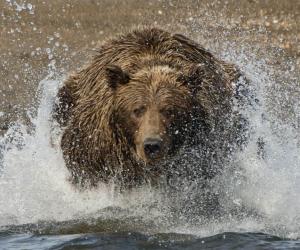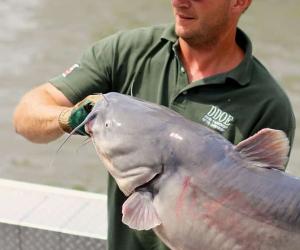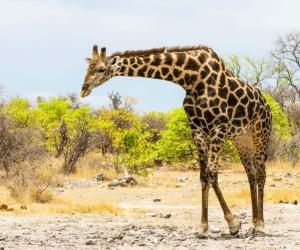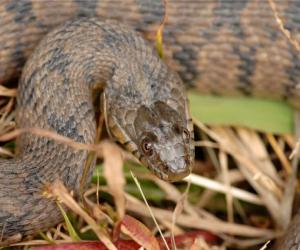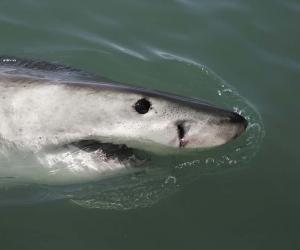What Dogs Are Telling You When They Lick Their Paws?
When dogs lick their paws, they are trying to tell their owners that something is wrong. Veterinarians and other animal experts suggest that the problem is caused by various biological, environmental, psychological, and behavioral issues. Though most are not serious, they can negatively impact a dog’s quality of life. Therefore, the problem should be looked into as soon as possible. Discover what dogs are telling you when they lick their paws.
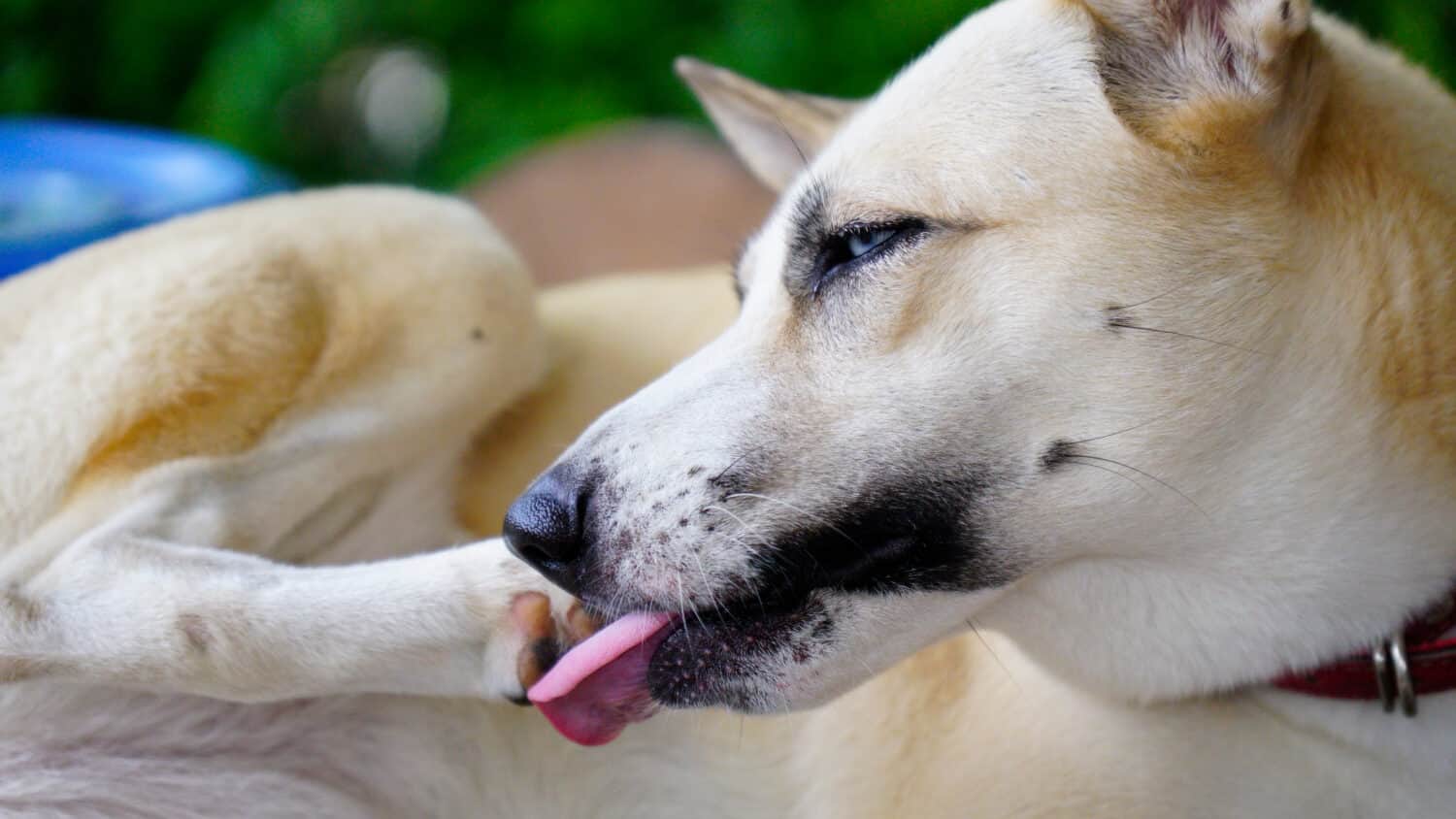
©KPhrom/Shutterstock.com
What Are The Causes Of Paw Licking?
Biological
Dogs often lick their paws for a host of biological reasons including:
Allergies
Allergies impact dogs much like they do humans. Food allergies commonly strike canines. Oftentimes, dog foods contain chemicals capable of causing allergic reactions. Moreover, food allergies produce symptoms of stomach upset like diarrhea, appetite loss, and gas.
Dogs also experience nasal allergies to substances like grass and pollen. In addition to paw licking, a dog might experience problems such as:
- Sneezing
- Coughing
- Itchy, watery eyes
- Redness around the eyes
- Runny nose
Skin Diseases
Skin diseases also result in paw licking. A relatively common condition called dermatitis impacts dogs resulting in red, irritated, and itchy skin.
Parasites
Tiny insects known as parasites may accumulate on or inside a dog’s skin making their paws irritated and itchy. Arguably, the most common dog-impacting parasite is fleas.
Injuries
Paw licking often results from injury. Stepping on a sharp object, traveling on hot pavement, or walking across salted roads treated for ice often produces cuts or swelling dogs attempt to soothe through licking.
Discomfort
Occasionally, dogs lick their paws to combat pain. A variety of conditions result in discomfort. Furthermore, paw licking does not necessarily suggest a problem in the foot or leg. Sometimes, pain coming from elsewhere in the body causes paw licking.
Psychological
Licking of the paws is often tied to certain psychological issues such as:
Anxiety
Like their human friends, dogs experience anxiety. Short-lived tensions produced by loud sounds like thunderstorms, fireworks displays, and lawnmowers might result in paw licking to provide comfort and ease their fears. However, continual licking of the paws may be a symptom of more serious problems like separation anxiety and social phobias often requiring professional treatment.
Stress
Stressful situations often cause dogs to engage in tension-lessening habits like paw licking. Underlying illness or toxic living situations qualify as stress-causing concerns.
Behavioral
Dogs lick their paws for several behavioral-related reasons such as:
Grooming
A dog’s paws are exposed to dirt, dust, and other particles all day long. Paw licking serves as a self-cleaning effort.
Boredom
Much like their human owners, when dogs face boredom, they often kill time engaging in habits like paw licking.
Environmental
Chemical Exposure
A dog’s paws are frequently exposed to grassy or other natural surfaces treated with potentially irritating chemicals.

©kamilpetran/Shutterstock.com
What Symptoms Accompany the Licking of the Paws?
Pet parents must look out for any symptoms accompanying paw licking. Possible issues include:
- Walking difficulties
- The inability to put pressure on the paw in question
- Sensitivity to the touch resulting in wincing or crying
- Decreased movement
At the very least, paw licking accompanied by other symptoms could decrease a dog’s happiness and quality of life. However, the problem might indicate a more serious illness or it resulted in a secondary infection. If dog owners notice a decrease in their pet’s appetite or water intake, they should schedule an appointment with their vet as soon as possible.
A raised body temperature also often indicates infection. Sometimes, if a dog’s nose is hot and dry, fever is present. Therefore, pet parents should feel their dog’s nose if the animal is licking its paws and experiencing any of the above symptoms.
When To Seek Professional Care?
Pet parents should schedule a visit to their pet’s veterinary care provider if their dog licks its paws for more than a few days or if the habit is accompanied by other symptoms. The diagnostic process might be time-consuming because paw licking has numerous causes. That said, dog owners should expect their dog’s healthcare provider to begin their examination by asking several questions such as:
- When did the problem start
- Do any activities bring the paw licking on or make it worse
- What symptoms accompany the paw-licking
- Did the dog start eating new food
- Did the problem begin during a particular season like the spring or summer
- Does the dog spend significant time outside
- Does the dog live in a tense household
- Did the dog experience any traumatic life events
Therefore, before their pet’s visit, owners are urged to write down as many details as possible. Every bit of information a vet is given better enables them to make a quicker diagnosis.
In some cases, vets use specific diagnostic tests to determine the reason a dog licks their paws repeatedly. Common examples include blood tests, in addition to skin and hair samples to weed out the presence of pathogens, parasites, or allergies.
What Are the Treatment Options?
Vets choose specific treatments based on the underlying cause. Occasionally, something as simple as changing the dog’s diet or limiting their exposure to a specific allergen reduces or eliminates paw licking. Possible home remedies pet parents can try include:
- Purchasing paw coverings like boots designed to protect from potential dangers like hot pavement or salt-melting ice pellets
- Thoroughly cleaning and drying the animal’s paws following walks or trips outside
- Moisturizing their skin with creams and lotions
- Providing their dog with chew toys and mind-occupying activities like games and puzzles
However, more serious problems like infections often require antibiotics or anti-fungal medications. If the problem is parasites, anti-parasitic medications will likely be prescribed. Cases of anxiety might benefit from anti-anxiety drugs. Should the issue result from another illness, addressing that problem may lessen associated symptoms like paw licking.
